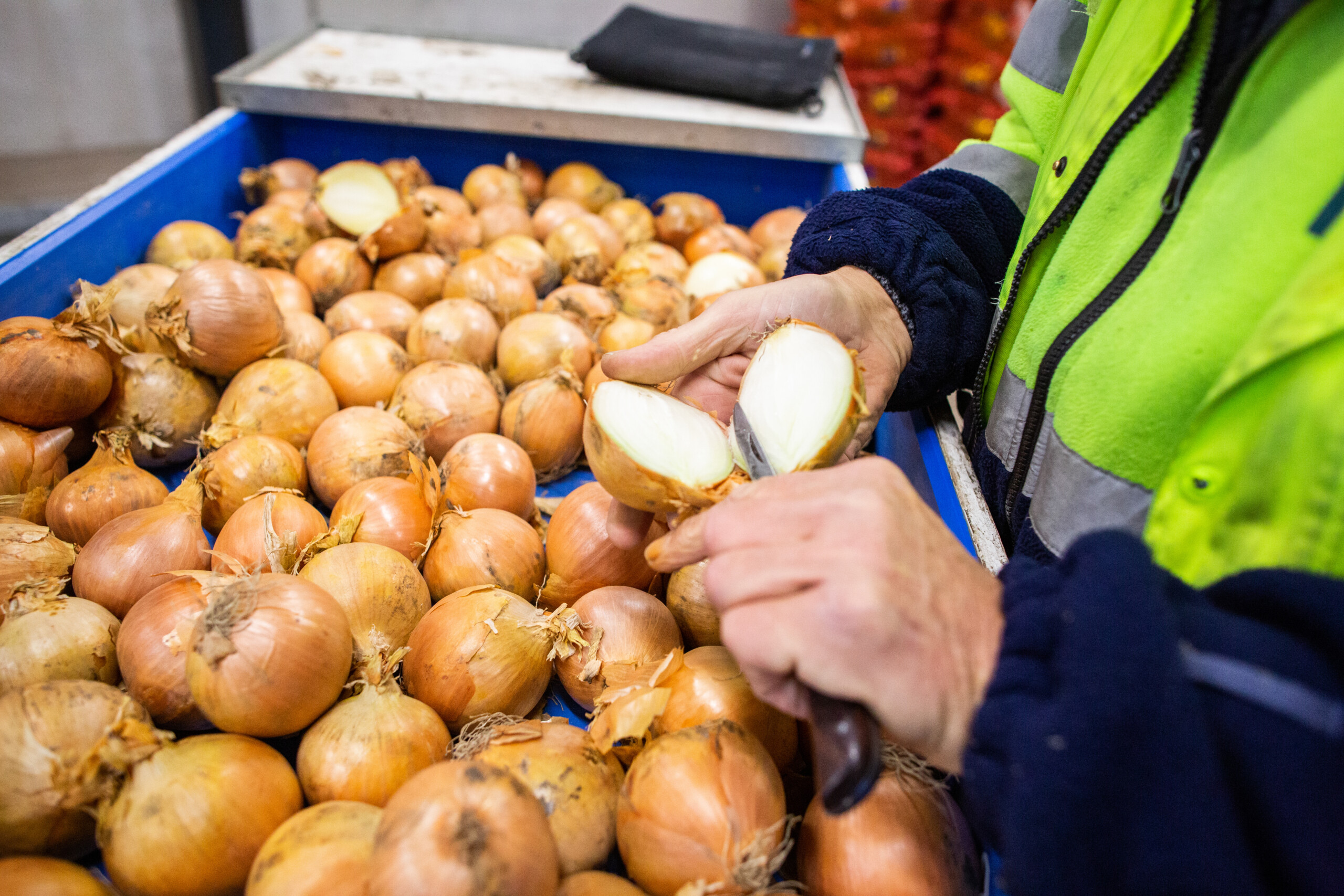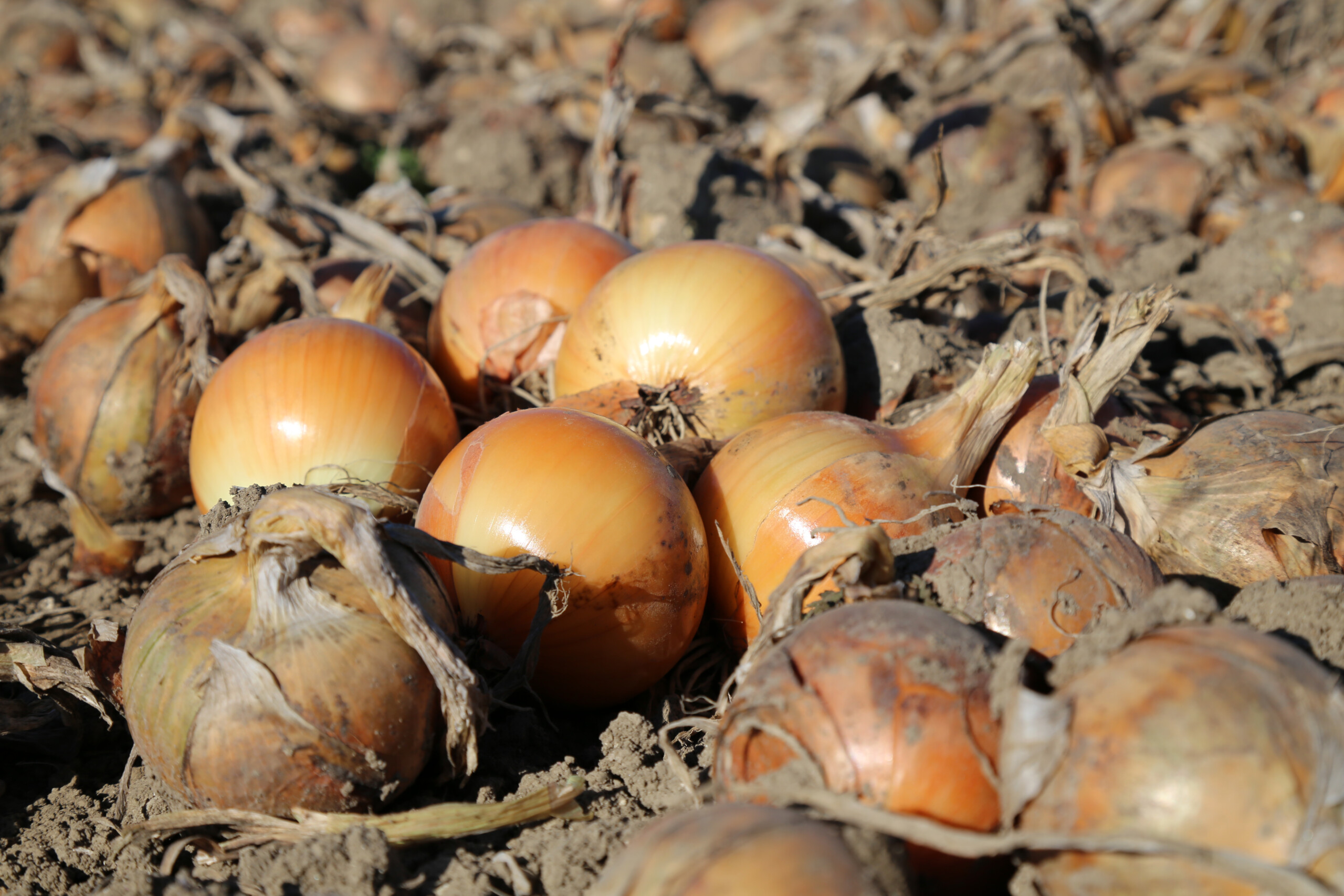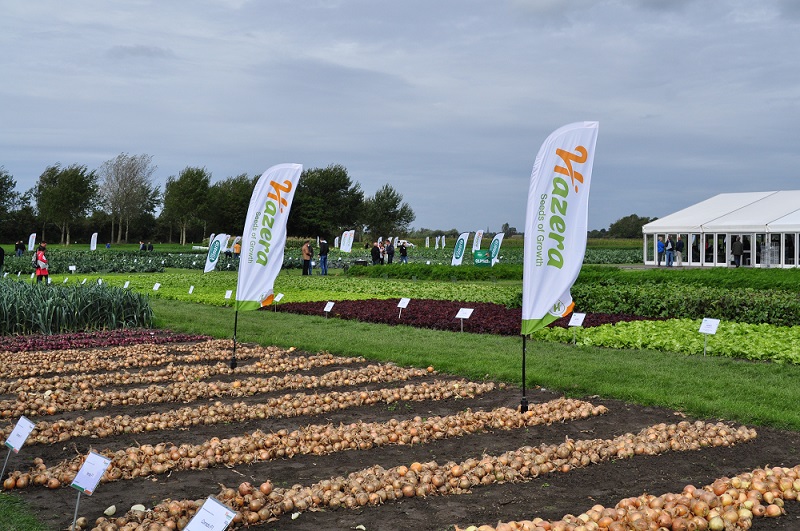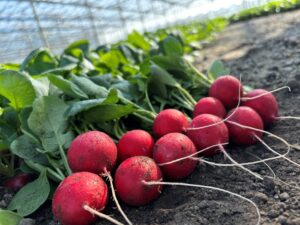In a year of challenging growing conditions, the quality of onions is an important concern for growers, processors, and breeders. Lindert Moerdijk, Sales Director at MSP Onions, and André Boot, Senior Onion Specialist at Hazera, focus on hardness and skin firmness, whilst emphasizing the importance of collaboration. “Those aiming to deliver quality must look ahead.”
“We faced a late sowing, followed by a hot summer with sunburn issues and a harvest with weather conditions that negatively impacted the internal quality of the onions”, André sums up the past year. “As a result, nearly every batch of onions has internal rot,” Lindert adds. “But our biggest challenge is internal sprouting. Due to the dry summer, conditions for MH spraying weren’t ideal, resulting in sprouting.”
“The times in which we viewed onions as a conventional arable crop are over. You must treat them as horticultural crops, directly catering to their needs. This way, you strive to create ideal conditions and thereby achieve consistent growth”, Lindert says. However, he acknowledges that growers can’t solve everything. “Solving internal sprouting requires substantial investments. Then the question arises: what do we expect from the climate in the next 10 years, how does this affect growing conditions, and can we anticipate it?”
Investing in quality
With their optical sorting machine, MSP Onions proves that forward-thinking pays off in the mutable onion industry. “By investing early on, we are now one of the few processors with an optical sorter that can be programmed for quality. This enables us to process almost every batch and deliver the right hardness and skin firmness,” Lindert explains. He sees this position being reflected in the demand. “We must work nights to meet demand. The decreasing quality of onions across Europe is evident from the fact that we’ve been supplying to other European countries since November. That’s unusually early. This also presents opportunities for Dutch growers.”

Hard and firm
“In the current market, even with overcapacity, shortages exist for onions that meet the highest quality standards,” Lindert continues. “So, these quality standards are crucial for us. In Hazera’s onion varieties, we can see they share that focus.” André confirms this. “Especially in the lighter sandy soils, where onion cultivation has expanded in recent years. Varieties like Vento, Dormo, and Centro perform well there. In that soil, you need onions that naturally grow more slowly to stay firm.”
Skin firmness is a significant theme for both Hazera and MSP as well. “Our varieties are characterized by a nice round shape and high storage efficiency,” André explains. “It’s important for the grower that the onions maintain the same quality later in the season. If they grow too fast, you’ll encounter baldness later on. That’s not an issue with our varieties.” MSP’s processing also focuses on maintaining skin firmness. “In our process, product friendliness takes precedence over quantity. No bulk, but rather fewer onions that are genuinely good,” says Lindert. “Especially now that the quality of onions coming from the fields is under pressure, caution is necessary.”

A stronger future together
According to Lindert, the strength of the collaboration between MSP Onions and Hazera lies in their shared ambition. “We both want to continuously elevate the Dutch onion to a higher level. We also have a joint responsibility to advise growers as well as possible. The knowledge Hazera shares with us about onion varieties is invaluable from MSP’s perspective.” André adds, “We want to advise growers, especially in new cultivation areas, on where they can go for high-quality processing. Collaborating closely with processors and sharing knowledge are crucial in this.”





